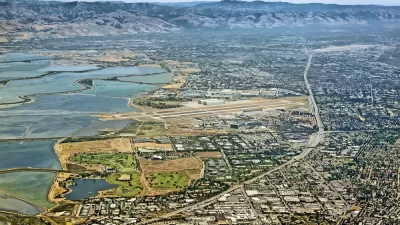Andres Duany takes to the CNU's Public Square to argue for the critical need for codes in a built environment awash in mediocrity.

Within the last half-century, some 30 million buildings have degraded cities and reduced landscapes. Must we tolerate this comprehensive disaster in exchange for the, perhaps, three thousand great buildings that great architects have produced? Such a win-loss ratio is as unacceptable in architecture as it would be in any other field. We are compelled to intervene and have found that codes are the most effective instruments of reform.
So begins a recent opinion by Andres Duany, one of the founders of the Congress for New Urbanism and, as the article makes clear, a persistent provocateur of urbanism's status quo.
Duany's polemic acknowledges one of the arguments against what he calls urban design codes (he never calls them design guidelines, nor does he call them form-based codes): that they quell creativity and constrain the possibility of an architectural masterpiece. But consistently and at some length, Duany presents his case as a series of imperatives. It's a loud and clear policy manifesto from a figure famous for them.
FULL STORY: Why we code

Alabama: Trump Terminates Settlements for Black Communities Harmed By Raw Sewage
Trump deemed the landmark civil rights agreement “illegal DEI and environmental justice policy.”

Study: Maui’s Plan to Convert Vacation Rentals to Long-Term Housing Could Cause Nearly $1 Billion Economic Loss
The plan would reduce visitor accommodation by 25% resulting in 1,900 jobs lost.

Planetizen Federal Action Tracker
A weekly monitor of how Trump’s orders and actions are impacting planners and planning in America.

Wind Energy on the Rise Despite Federal Policy Reversal
The Trump administration is revoking federal support for renewable energy, but demand for new projects continues unabated.

Passengers Flock to Caltrain After Electrification
The new electric trains are running faster and more reliably, leading to strong ridership growth on the Bay Area rail system.

Texas Churches Rally Behind ‘Yes in God’s Back Yard’ Legislation
Religious leaders want the state to reduce zoning regulations to streamline leasing church-owned land to housing developers.
Urban Design for Planners 1: Software Tools
This six-course series explores essential urban design concepts using open source software and equips planners with the tools they need to participate fully in the urban design process.
Planning for Universal Design
Learn the tools for implementing Universal Design in planning regulations.
Caltrans
Smith Gee Studio
Institute for Housing and Urban Development Studies (IHS)
City of Grandview
Harvard GSD Executive Education
Toledo-Lucas County Plan Commissions
Salt Lake City
NYU Wagner Graduate School of Public Service





























